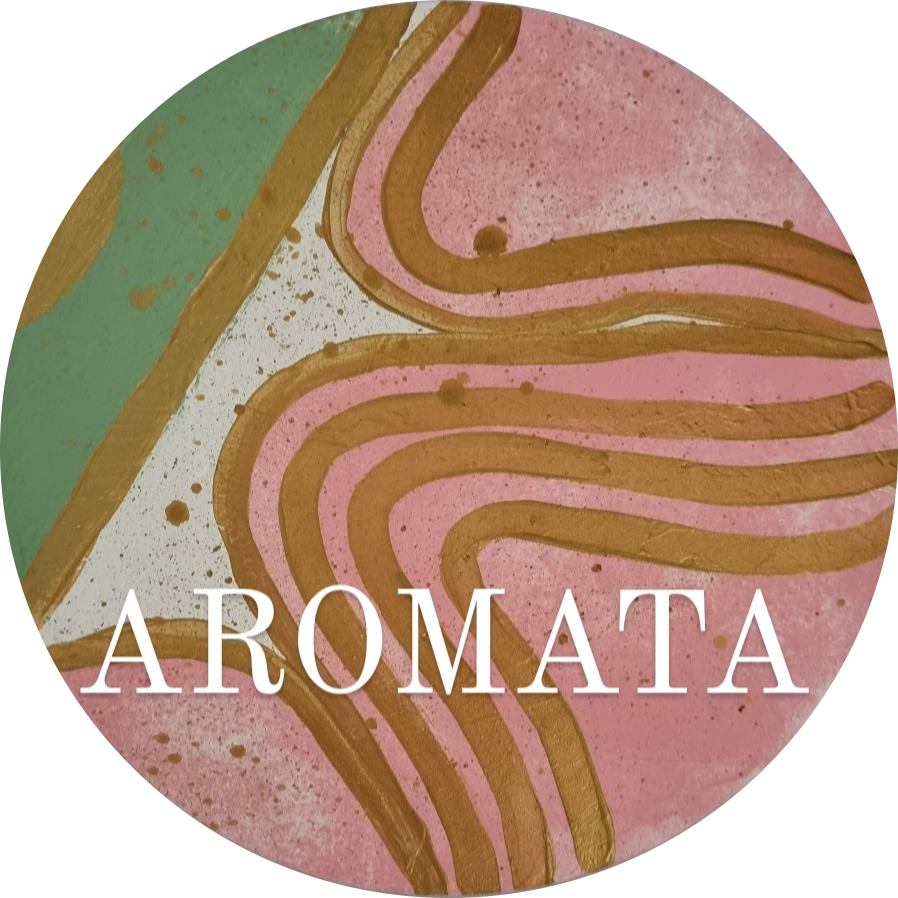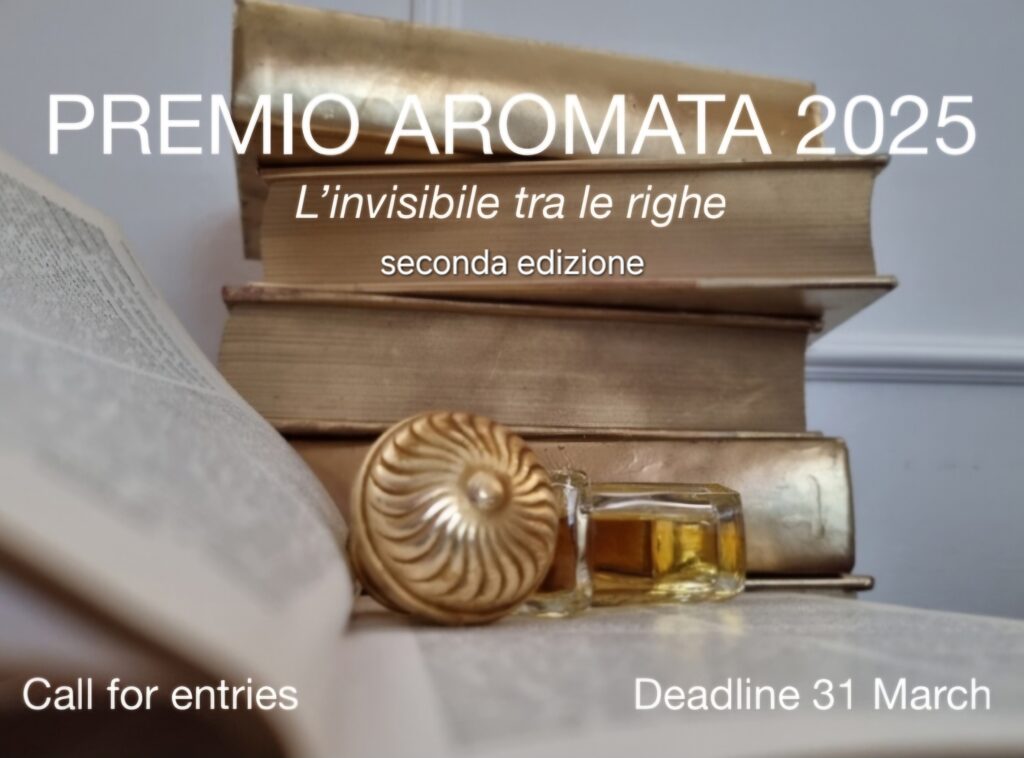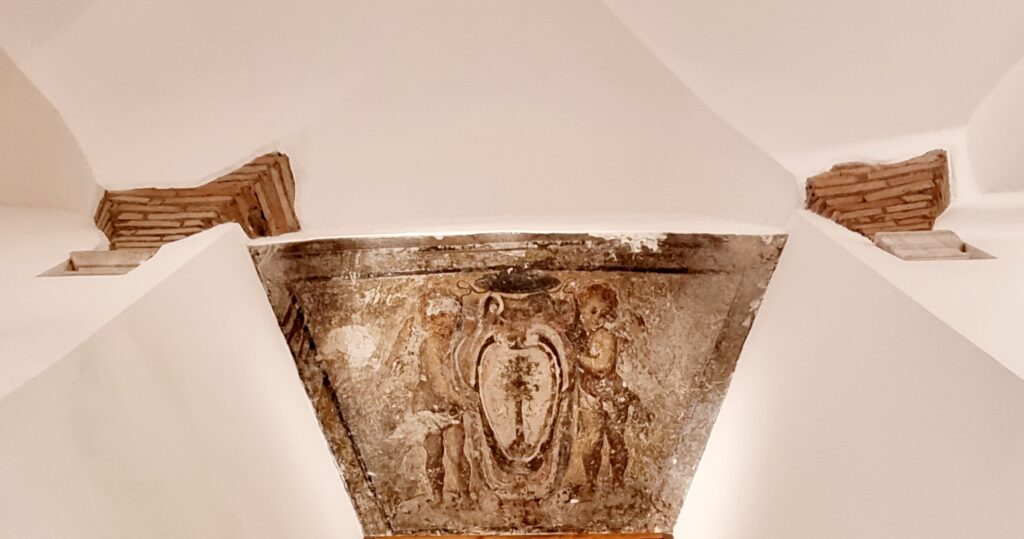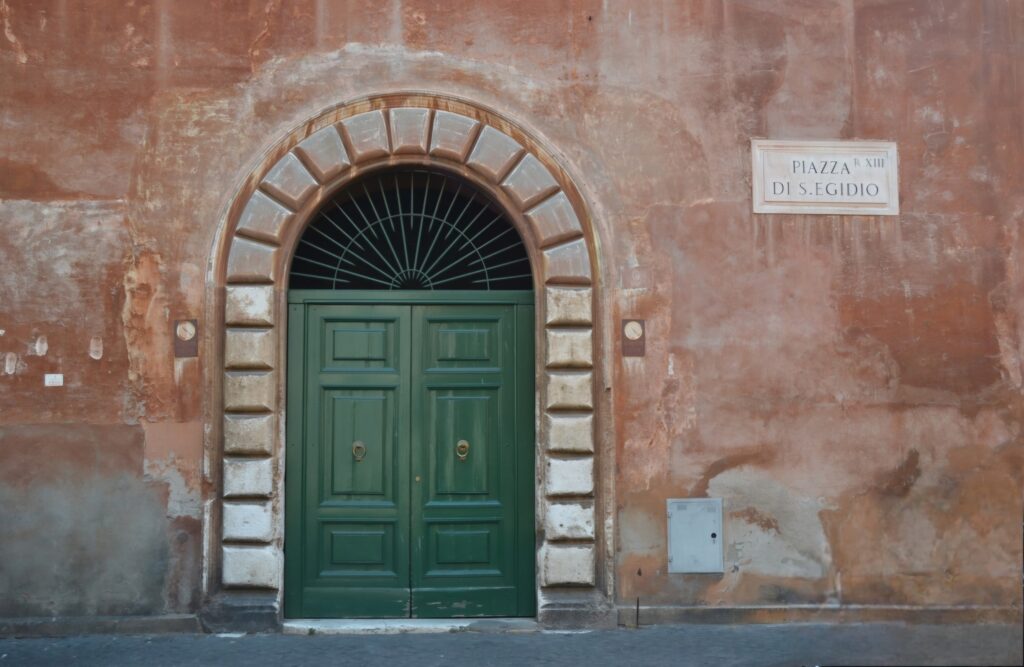
The Premio Aromata is an international competition and exhibition event dedicated to artistic and designer perfumery. The event, promoted by the Roman cultural association LiberoStile, was born from an idea by Laura Amato, founding member.
The project, which focuses on the artistic aspect of perfumery, aims to enhance the material and immaterial heritage of this centuries-old art and to spread its culture with various activities such as competitions, exhibitions, workshops, conferences, book presentations. Aromata is aimed not only at a specialized public, but also and above all at non-experts to whom it aims to make known and appreciate the fascinating world, rich in history and skills, of artistic perfumery.
The initiative, the only Roman event of its kind, has become an annual event through which the artistic creativity and sensitivity of master perfumers are highlighted and appreciated on a par with those of a famous composer, a great painter or a refined jeweler. "In short, in perfumery the artist refines the raw aroma of nature, facets it and mounts it like a jeweler makes a gem brighter and enhances it" (Joris-Karl Huysmans, Against Nature)

The Premio Aromata 2025 "Perfume: expressive code" is a contest inspired by the Call for Art in which artists are invited to create a themed work. In this case, master perfumers - protagonists of what can undoubtedly be considered a secular art - are called to create their creation. Also for this second edition, the chosen theme is "The invisible between the lines": a journey dedicated to the link between writing and perfume, between the scripta manent and the narrative power, albeit evanescent, of a fragrance.
There are many books in the world's literary production whose plots revolve around perfumes. Authors from every era and place, starting from Pliny the Elder, who dedicated to Vespasian a broad scientific dissertation on the production and social destination of Eastern perfumes, to Greek literary and poetic sensibility, an example is Chronography by Michael Constantine Psellus, 11th century, which describes the empress Zoe intent on the art of distilling essences. Even further East, here is The Tale of Genji, by Murasaki Shikibu, which highlights the great value attributed to perfume by Japanese culture in the Heian era. Returning to Europe, one can think of the entire English Renaissance sonnet, the 64 of “Amoretti”, dedicated by Edmund Spenser to the perfume of the beloved woman, up to the 19th century in Sicily with Profumo, a verist novel by Luigi Capuana and the contemporary Parfums, a sentimental inventory of the smells of a life in 63 Stories by Philippe Claudel, a French writer and director. The sources of inspiration can therefore be the most disparate.
Not only perfume in literature, but also the reverse process: literature that becomes fragrance. We are interested in the possibility that the invisible - told or imagined - that dwells between the lines of a literary extract, comes to life thanks to the creativity of the maitre parfumeur.
Participants are then asked to present their own creation (not necessarily recent) inspired by the perfumes described in the chosen literary text, or a fragrance that embodies the emotion aroused by the charm of a character in a story, by the atmosphere of the settings in a novel, by the text of a poem, by the mark left on the heart and by the intimate change that reading those lines has made possible. The master perfumers will translate the sensations and states of mind aroused by reading those words into olfactory notes. Their literary choices will constitute the stages of a sensory experience: an olfactory journey, a tour of the world, a journey through time.
ㅤ
*

With the term Aromata the Romans indicated the spices whose aromas were used to make perfumed oils and ointments such as Nardinum composed, among the many ingredients, of amomum, myrrh, unripe olive oil, but above all of nard, whose warehouses, the Horrea piperataria in the Roman Forum, have recently been restored and opened to the public. At the time, the perfumers were united in the corporation Collegium aromatarium and their workshops were grouped near the Velabrum, in particular in the Vicus thuriarius and in the Vicus unguentarius. The Romans perfumed everything: walls, mosaics, statues, clothes, wines and food, theater stages; according to Suetonius, in the Domus Aurea "The ceiling of the dining rooms was made of movable ivory tablets, through openings from which flowers and perfumes flowed”.
It is therefore no coincidence that Rome immediately appeared to us as the ideal place to host the competition. The evocative power of a perfume is eternal, as this city and its consolidated artistic vocation make it the ideal place to promote the culture of niche perfumery.

The second edition of the Premio Aromata, which will take place from May 15 to 17, will be hosted this year by the large rooms of Palazzo Velli, a medieval palace in the heart of the Trastevere district in Piazza S. Egidio. Built at the end of the 14th century by the Velli family, one of the oldest and noblest Roman families, it is now home to a fascinating multifunctional space that welcomes numerous visitors to a busy list of events and art exhibitions.